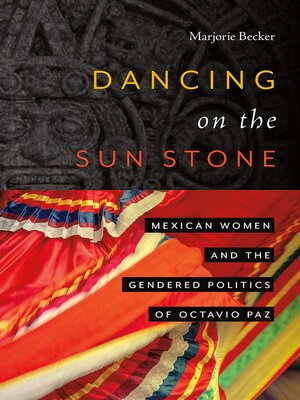Dancing on the Sun Stone
ebook ∣ Mexican Women and the Gendered Politics of Octavio Paz
By Marjorie Becker

Sign up to save your library
With an OverDrive account, you can save your favorite libraries for at-a-glance information about availability. Find out more about OverDrive accounts.
Find this title in Libby, the library reading app by OverDrive.



Search for a digital library with this title
Title found at these libraries:
| Library Name | Distance |
|---|---|
| Loading... |
Dancing on the Sun Stone is a uniquely transdisciplinary work that fuses modern Latin American history and literature to explore women's lives and gendered politics in Mexico. In this important work, scholar Marjorie Becker focuses on the complex Mexican women of rural Michoacán who performed an illicit revolutionary dance and places it in dialogue with Nobel Prize winner Octavio Paz's signature poem, "Sun Stone"—allowing a new gendered history to emerge.
Through this dialogue, the women reveal intimate and intellectual complexities of Mexican women's gendered voices, their histories, and their intimate and public lives. The work further demonstrates the ways these women, in dialogue with Paz, transformed history itself. Becker's multigenre work reconstructs Mexican history through the temporal experiences of crucial Michoacán females, experiences that culminate in their complex revolutionary dance, which itself emerges as a transformative revolutionary language.
Through this dialogue, the women reveal intimate and intellectual complexities of Mexican women's gendered voices, their histories, and their intimate and public lives. The work further demonstrates the ways these women, in dialogue with Paz, transformed history itself. Becker's multigenre work reconstructs Mexican history through the temporal experiences of crucial Michoacán females, experiences that culminate in their complex revolutionary dance, which itself emerges as a transformative revolutionary language.







